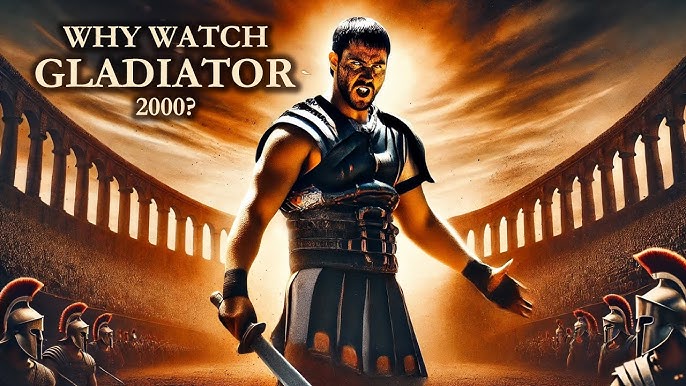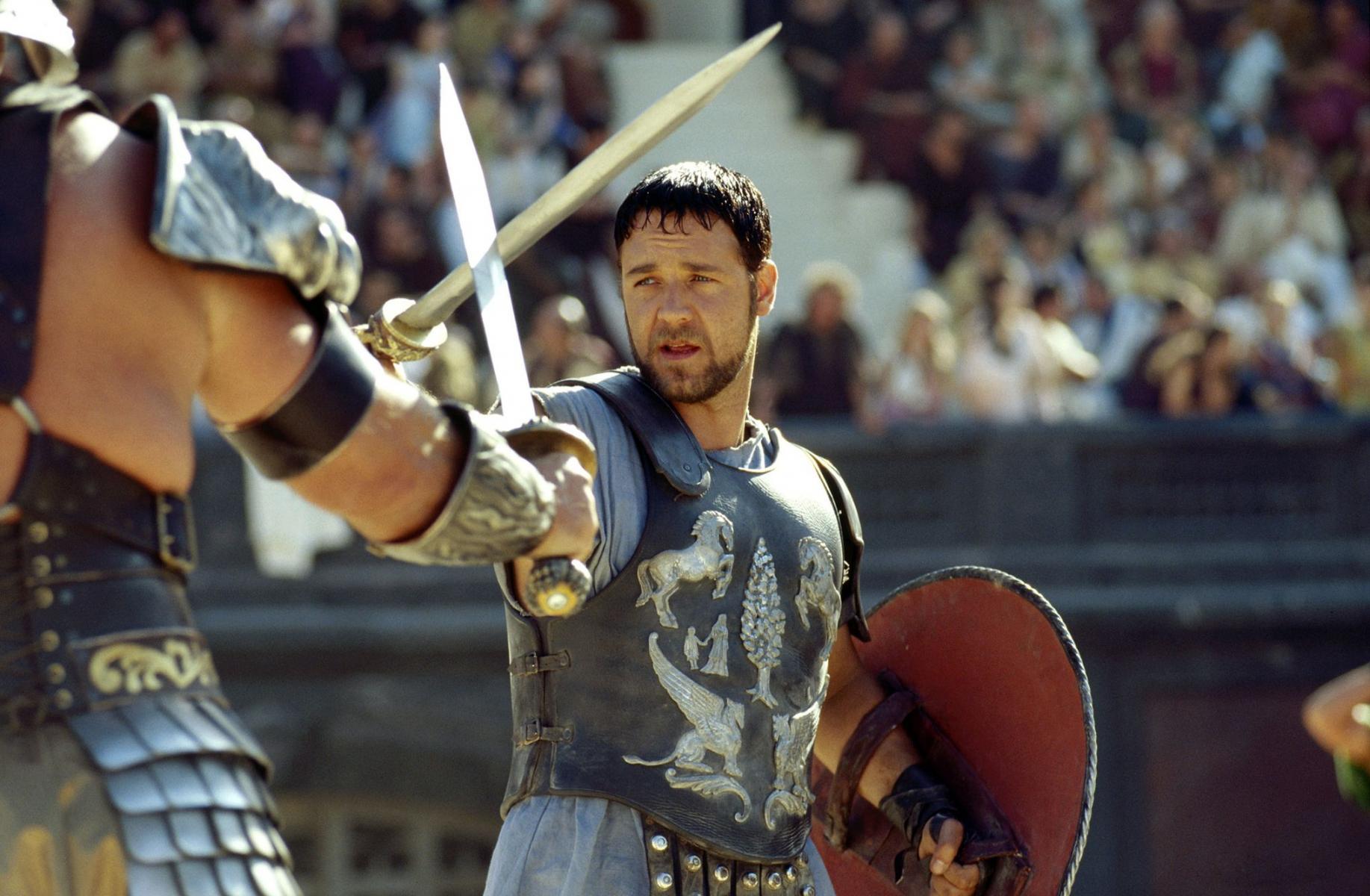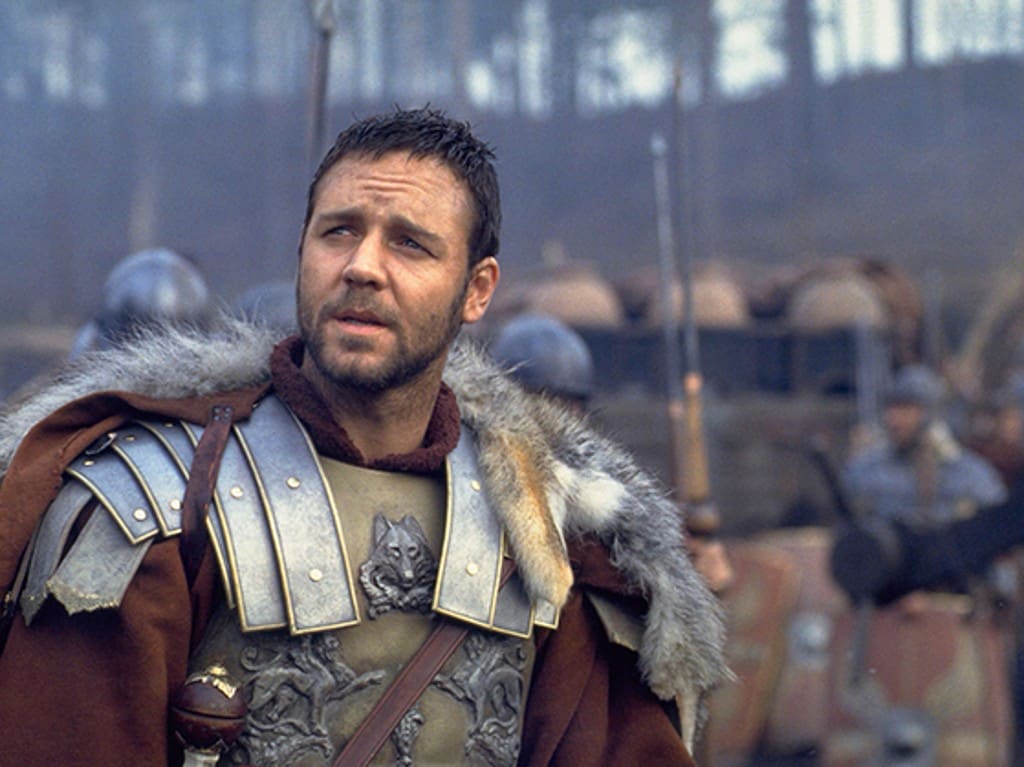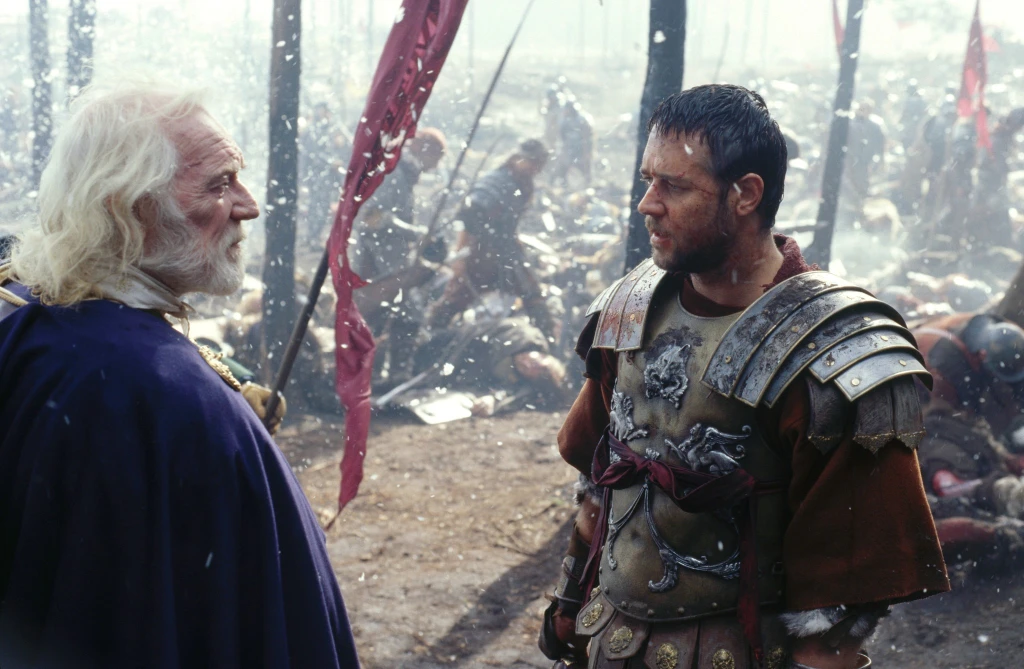🎬 Gladiator (2000): A Tale of Honor and Revenge

🎬 Gladiator (2000): A Tale of Honor and Revenge
Ridley Scott’s Gladiator (2000) is a cinematic masterpiece that combines epic battles, political intrigue, and a deeply personal quest for justice. This historical drama, set in the Roman Empire during its golden age, tells the story of Maximus Decimus Meridius (Russell Crowe), a loyal general betrayed by the empire he once served. What follows is a gripping tale of honor, vengeance, and redemption as Maximus rises from the ashes of betrayal to challenge the corrupt forces that destroyed his life.

The film begins with Maximus leading the Roman army to a glorious victory, earning the favor of Emperor Marcus Aurelius (Richard Harris). The aging ruler sees in Maximus a worthy successor, someone who can restore Rome to its former glory as a republic. However, this choice threatens the emperor’s son, Commodus (Joaquin Phoenix), a power-hungry and unstable figure. Consumed by jealousy and ambition, Commodus murders his father and seizes the throne. Maximus, refusing to pledge loyalty to the new emperor, is sentenced to death.
In a harrowing sequence, Maximus escapes execution only to discover that his wife and young son have been brutally killed on Commodus’s orders. Broken and enslaved, Maximus is sold into the brutal world of gladiatorial combat. Stripped of his title and purpose, he is thrust into an arena where survival is earned through blood and skill.
Under the tutelage of Proximo (Oliver Reed), a former gladiator turned trainer, Maximus quickly rises in the ranks of the Colosseum’s deadly games. His prowess in combat and his unyielding spirit earn him the admiration of the crowd, making him a symbol of resistance against the tyranny of Commodus. As Maximus battles for his life in the arena, he secretly plots his revenge, waiting for the moment when he can confront the man who stole everything from him.
The heart of Gladiator lies in its exploration of themes like loyalty, sacrifice, and the thirst for justice. Maximus’s journey is not just one of revenge but also of reclaiming his honor and fulfilling the dying wish of Marcus Aurelius to free Rome from tyranny. His transformation from a celebrated general to a gladiator fighting for his life is both tragic and inspiring, showcasing his resilience and determination.

Russell Crowe delivers a career-defining performance as Maximus, embodying the character’s strength, vulnerability, and unwavering sense of duty. Joaquin Phoenix’s portrayal of Commodus is equally compelling, presenting a villain who is both despicable and deeply human in his insecurities and need for validation. Their conflict becomes the emotional and narrative core of the film, culminating in a climactic showdown in the Colosseum that is as emotionally charged as it is visually spectacular.
Ridley Scott’s direction brings ancient Rome to life with breathtaking authenticity. The film’s production design, costumes, and visual effects recreate the grandeur and brutality of the Roman Empire, from the sprawling Colosseum to the bloody spectacles of the gladiatorial games. Hans Zimmer’s iconic score adds a hauntingly beautiful layer to the film, amplifying its emotional and epic moments.

Beyond its stunning visuals and action-packed sequences, Gladiator is a deeply personal story about the power of the human spirit. Maximus’s unwavering commitment to his principles, even in the face of overwhelming odds, makes him one of cinema’s most enduring heroes. The film also raises poignant questions about legacy, leadership, and what it truly means to serve a greater good.
Gladiator received widespread critical acclaim upon its release and won five Academy Awards, including Best Picture and Best Actor for Russell Crowe. Its legacy endures as one of the greatest historical dramas ever made, a film that combines spectacle with heart and delivers a story that resonates across generations.
At its core, Gladiator is not just a tale of vengeance but a celebration of honor, love, and the indomitable will to fight for what is right. Maximus’s journey from betrayed soldier to a champion of the people reminds us that true greatness lies not in power but in courage and integrity. As the iconic line echoes through the ages: “What we do in life echoes in eternity.”











